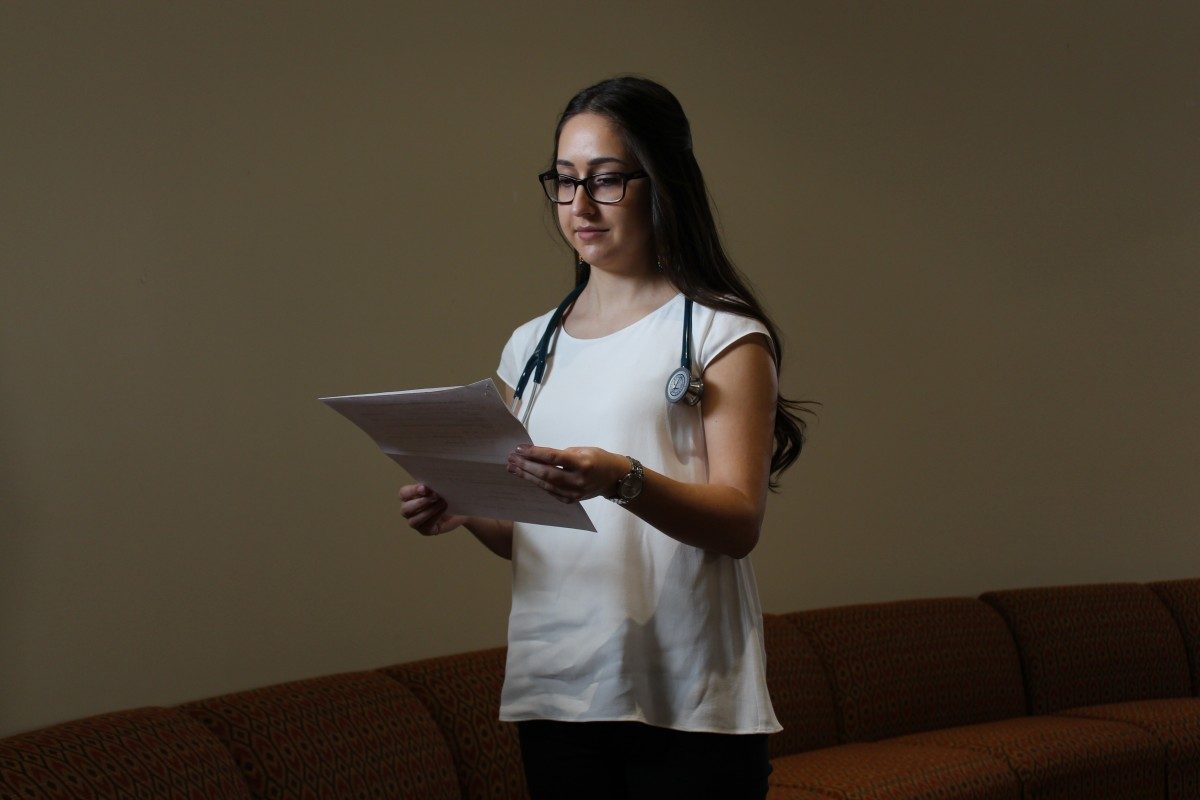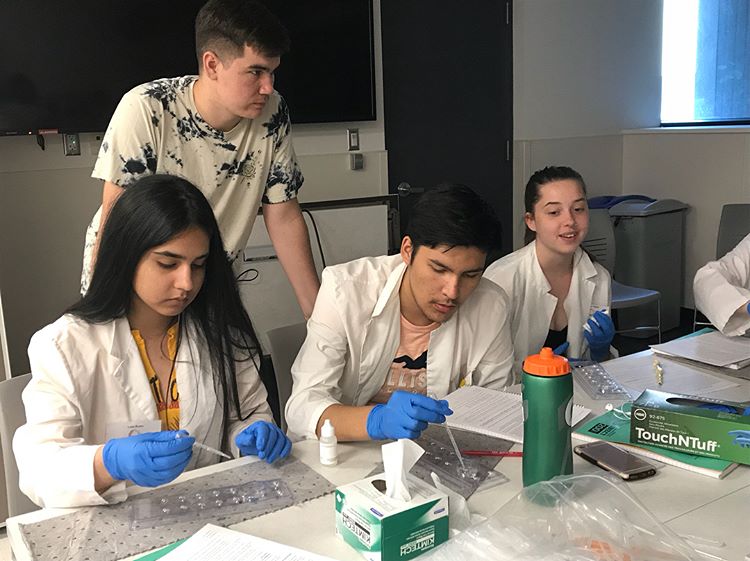
Carly McLellan.
Medical student Carly McLellan inspired by Health Career Quest Summer Camp
From camper to medical student
The summer before she went into Grade 12, Carly McLellan attended the Health Career Quest Summer Camp at the U of M. Now she is studying medicine.
“That camp changed my life,” says McLellan, a Cree Métis Access Professional Health Program (PHP) student from Thompson, Man. who went on to work at the camp as a counsellor, and then as a coordinator. “It brings Northern Indigenous youth into the university to explore health careers. I met an Indigenous medical student and realized I could do it too. I always wanted to go to university. I saw the path. I decided to do it.”

Health Career Quest Summer Camp students
From July 11 to 21, the Health Career Quest Summer Camp welcomed 16 participants to the U of M for 12 days. This year, the camp is three days longer and has added math and science components. It started in 2008, and was designed to expose Northern Indigenous Grade 11 students to the possibilities of attending university and pursuing health careers, and to inspire them. Students live in-residence at the Fort Garry campus, and travel to the Bannatyne campus daily for hands-on experiences in medicine, dentistry, pharmacy and medical rehabilitation.
This year’s participants stayed at St. John’s Residence, thanks to the contribution of Heathbridge Capital Management. The Office of Rural and Northern Health, the Access programs, and Frontier School Division partnered to offer the camp which this year, received $25,000 from the U of M Indigenous Initiatives Fund.
Those who attend the camp and later go on to university are encouraged to become camp counsellors and apply to the Access Program, as McLellan did. This year’s camp counsellors Curtis Leclerc, Jessie McGregor, and Liz Keeper are also Access students. Keeper is studying dentistry. Access provides holistic support to Indigenous, newcomer, and other U of M students, empowering them on their path to success.
Growing up in Northern Manitoba, McLellan saw first-hand how family medicine could be improved in her community. A high rate of doctor turnover meant she never had the same family doctor for long. There was only one clinic and hospital in her community, and she felt the long wait times and lack of continuity in care.
As a newborn, she had been flown to Winnipeg for orthopedic care because there was no local specialized care. And she had never met an Indigenous doctor, nor had she ever heard of one working in Thompson.
Mentorship
“That’s a huge flaw. When I met Indigenous students studying medicine at a summer camp, when I spent two weeks with dentists and doctors at U of M’s Bannatyne campus clinic learning and simulating real experiences with dummies, that was the beginning of my mentorship.” It would continue with Access.
She spent five weeks working in the clinic and hospital in Thompson, when she was home from medical school for the summer after her first and second years of medicine. “I shadowed the family doctor. From birth to death, I experienced the whole life cycle in day-to-day practice.”
She also spent a few days at the CancerCare program satellite office, with cancer patients having chemotherapy treatments. “Their strength and resilience inspired me. They have such a great attitude.”
As well, she had the opportunity to spend a week in Nunavut. “The people were the nicest ever. There is such a strong sense of community.”
Although she hasn’t chosen her specialty yet, McLellan says she is drawn to family medicine in northern areas with her people.
“I see it. Indigenous people feel more comfortable talking with me. It’s safe to talk to your people. You have to feel safe in order to provide an appropriate level of care. Having an Indigenous mentor, having shadowed Indigenous doctors, you can’t compare. They have the kind of practice I want to have.”
You can do it
In March 2018, she won the Indigenous Student Award of Excellence, Trailblazer category. Trailblazer is a word she always wanted to associate with herself, she says. “I am my own biggest critic. I like to see evidence of change and know it is working. It is going to take a lot of work to make change. I want to see students, northern Indigenous high school students, believe they can be physicians, dentists, nurses. If others can do it, they can do it. They have the strength. I don’t want them to ever doubt that.”
At school and in her community, McLellan volunteered and always wanted to help. She describes herself as ambitious, and her parents recognized her potential. Her mom is a teacher, and her dad left school after Grade 8 and made his career working at the local nickel mine.
“They always expected me to reach for the moon. I will be the first doctor in my family.”
The people at Access continue to support McLellan on her career path, and encourage her to work with her strengths and pursue her dreams.
“When it came time to apply for medical school, my confidence was an issue. I didn’t think my MCAT score was good enough. They encouraged me to go for it. I did. I put so much pressure on myself to get an acceptance letter. When I did, it was the best day of my life. It was amazing, and so overwhelming.”






